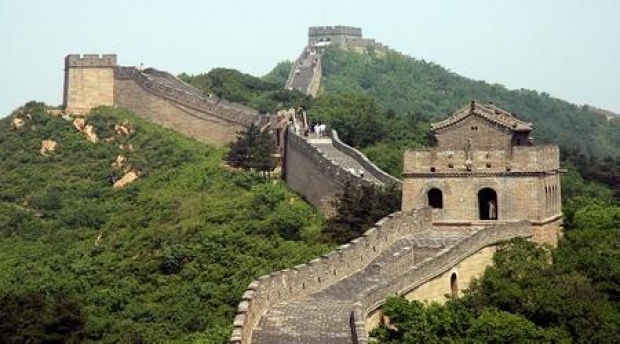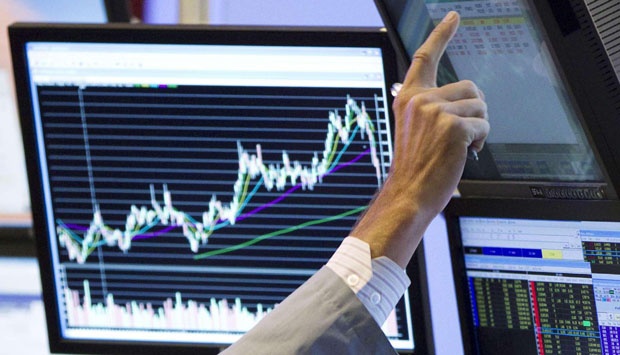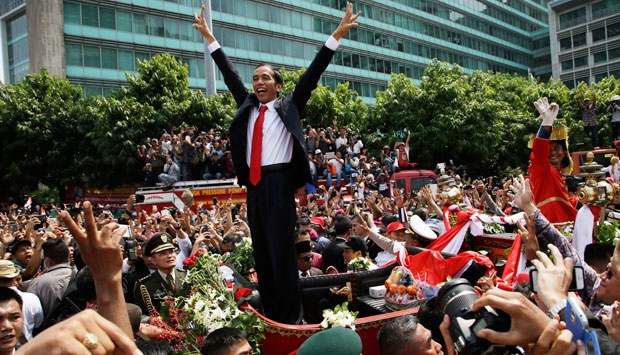China Lowers Growth Target, Promises to Open Industries
5 March 2015 12:34 WIB

TEMPO.CO, Jakarta- China announced a lower economic growth target for this year and promised to open more industries to foreign investors as it tries to make its slowing, state-dominated economy more productive.
The growth target of about seven percent, down from last year's 7.5 percent, is in line with efforts to create a "moderately prosperous society," said Premier Li Keqiang in a report Thursday to China's ceremonial national legislature. Actual economic growth last year was 7.4 percent, the lowest since 1990.
The ruling Communist Party is in the midst of a marathon effort to guide the world's second-largest economy to slower but more self-sustaining growth based on domestic consumption and services. It is trying to replace a worn-out model driven by trade and investment in construction and heavy industry that has left China's air and water badly polluted.
"We need to maintain a proper balance between ensuring steady growth and making structural adjustments," said Li in the report to the National People's Congress.
The full session of the 2,964-member NPC usually is limited to endorsing policy decisions already made by the ruling party but serves as a platform to publicize reform initiatives and set a tone for government work.
Communist leaders say they are comfortable with the slowdown that President Xi Jinping, invoking an American phrase, has dubbed "the new normal." But in a sign they are afraid of a politically dangerous spike in joblessness, they have tried to spur activity with two interest rate cuts since November and a reduction in business taxes.
Li promised to give entrepreneurs and foreign investors a bigger role in an economy that after three decades of market-oriented reforms still is dominated by government-owned banks, oil producers and other companies.
Beijing will cut in half the number of fields in service and manufacturing industries in which foreign investment is restricted, the premier said. He gave no details but the change has long been sought by foreign companies that face a thicket of restrictions and feel increasingly unwelcome.
China's growth has declined steadily since peaking at 14.2 percent in 2007. Much of that reduction was intentional as Beijing tried to cool inflation and a boom in construction and investment that fueled worries about rising debt. Efforts to promote consumer spending have been slower to gain traction at a time when many workers worry about their financial futures.
The International Monetary Fund says growth could decline further to seven percent this year and a Cabinet think tank, the Development Research Center, has said it could fall as low as six percent next year.
China's slowdown has had global repercussions, cutting demand for iron ore and other commodities that helped to drive economic booms in Brazil, Australia and other countries. But if Beijing succeeds in building up a consumer market, that could boost demand for other imports from higher-quality food to Hollywood movies.
In a separate report, the Cabinet's planning agency promised to "improve the environment for consumer spending" by improving social welfare systems to reduce the need for Chinese households to save so much to pay for retirement and medical care.
Li, the premier, warned China's economy still faces problems including rising operating costs, a scarcity of credit for private companies and a low level of innovation.
"Maintaining stable growth is becoming more difficult," he said.
A key issue is the status of state companies that control industries including banking, telecoms, shipping and energy and benefit from subsidies, monopolies and other favors. Reform advocates say they are a drag on development but the ruling party has yet to take significant steps to trim their privileges.
Li gave no indication government enterprises will lose their favored status but said projects led by them will be opened to private investment. He did not say whether outside investors would gain any voice in management.
The premier announced a 6 percent target for growth in trade, an industry that employs millions of Chinese workers. Last year's target was 10 percent but actual growth came in at just 3.4 percent due to weak demand, triggering a wave of factory closures and labor tension in China's export-dependent southeast.
Li also promised widely anticipated changes in China's state-owned banking industry. He said qualified private investors will be allowed to set up small and medium-size banks, though he gave no details of who would be permitted to do that.
Beijing will create a deposit insurance system for banks, Li said. That would force institutions to pay closer attention to management by raising the possibility that a badly run bank could be shut down without depositors losing money.
Li also promised to cut pollution that is choking China's cities and improvements in a range of other social areas, including education and poverty alleviation.
The government aims to reduce carbon intensity, or emissions per unit of economic output, by 3.1 percent and will cut emissions of sulfur dioxide and other pollutants, Li said.
In the countryside, authorities will try to bring electricity to the homes of the remaining 200,000 people who still lack it, the premier said.
Li gave no update on the status of anti-terrorism crackdowns being waged by Beijing in restive ethnic minority areas in Tibet and the northwestern Muslim region of Xinjiang. He repeated the Communist Party's stance that has improved livelihoods there and is protecting traditional culture.
Li said the government will make a priority of organizing celebrations of the 50th and 60th anniversaries of the start of communist rule in Tibet and Xinjiang, respectively.
AP























